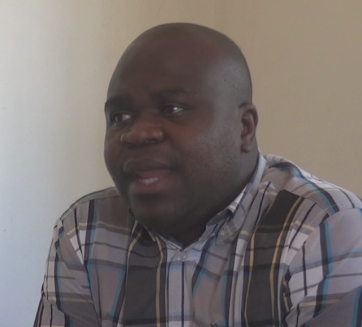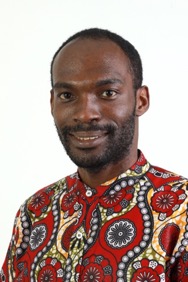Dr Ross Harvey
Zambia faces a range of economic, social and political challenges that require urgent intervention and real reform if the country’s development is to be safeguarded and future-proofed. This according to experts speaking at the Good Governance Africa (GGA) A strategy to Future-Proof Zambia webinar, hosted in collaboration with the Mail & Guardian.
Director of Research and Programmes at GGA, Dr Ross Harvey, who moderated the webinar, said that Zambian President Hakainde Hichilema achieved a historic electoral victory in August 2021, after losing five previous elections. The fact that he persevered despite previous losses showed tremendous grit, but he has since faced a range of economic, social and political challenges predicted to hold the country back from achieving its developmental goals. “Many of these challenges were inherited from the previous administration,” Harvey explained.
Despite this, Harvey said, Zambia has enormous potential and Hichilema and his government’s recent deal with the International Monetary Fund (IMF) appears to have increased investor confidence in the country. “This has occurred against the backdrop of growing global demand for copper — there are very few available substitutes for copper, and thus Zambia’s prospects appear promising. Zambia is one of Africa’s largest copper producers, second only to the DRC, with a potential capacity to produce over a million tonnes a year.”
 Laura Miti
Laura Miti
But, he added, if Zambia’s development is to be safeguarded, it cannot be a “business as usual” approach with mere piecemeal reforms. “It is our contention at GGA that the country urgently needs a major economic shift to ensure that it can successfully master the structural and policy challenges that threaten its progress, and these demand urgent intervention.”
Over the past year, GGA has sought to understand the key issues when it comes to Zambia; this work has included analysis of debt-restructuring options through structural reform programmes such as those offered by the IMF, and the significant role of copper in the global energy transition.
Laura Miti is the Executive Director for the Alliance for Community Action (ACA), an organisation which works to grow the demand for public resource accountability in the Zambian public. She said the democratic and governance questions that have dominated the conversation in recent years seem to have taken a back seat, which, she added, is not to say that they have been resolved. “Civil society is worried about the delay in bringing certain legislation to parliament,” she explained. “This included the Public Water Act, which was a big problem in the last administration, the Constitution and Access to Information Acts, as well as Amendments to the Cybersecurity Law.”
When it comes to good governance, she said, there are issues that must be addressed: “I would say the major issue now is the economy, which has not improved, and there is a sense of impatience among citizens who it seems expected the new government to come with a magic wand. There would suddenly be jobs, prices would go down … and that, of course, has not happened.” She said unemployment, poverty and hunger are the major issues facing Zambians today. This has a knock-on effect on crime. Underpinning this is the issue of debt inherited by the new administration.
 Boniface Cheembe
Boniface Cheembe
Executive Director of the Southern African Centre for the Constructive Resolution of Disputes (SACCORD), Boniface Cheembe, agreed: “The last debt profile of Zambia stood at $52-billion, and that debt has been a very big issue for this country. From the very onset, the government has given a proposal of how to attend to this debt issue, more specifically to secure an IMF bailout package, which from their vantage point would address two key issues.”
The first, he says, would be to attend to issues of the restructuring of the debt, engaging with creditors and ensuring that Zambia receives low interest rates that they are able to service. Secondly, to ensure that once the IMF package is secured, to ensure that it goes towards the balance of payments and addressing budget deficits that the country has been experiencing. In doing so, he adds, it would attend to some of the structural difficulties that the Zambian economy has been going through.
The experts agreed that when it comes to communication, the Zambian government is sorely lacking. “The hunger on the streets is making people impatient, and that impatience requires a lot of communication,” said Cheembe. “So the president must be helped more aggressively by his team to engage constructively with the people of Zambia and explain some of the successes, whether big or small, in terms of what is being implemented, and in doing so ensure that they carry the rest of the population with them.” Anything short of that, he said, will worsen an already challenging situation. To address this hunger, farming initiatives should also be prioritised as the country moves away from maize-centric agricultural practices.
 Vincent Obisie-Orlu
Vincent Obisie-Orlu
Vincent Obisie-Orlu is the Natural Resource Governance Programme Researcher at GGA. He said the current energy transition that the world is confronted with and the move towards a low carbon future opens a number of opportunities for Zambia. “The first being the fact that it is highly unlikely that the price of copper is going to suddenly crash; this is not to say that there will not be fluctuations in the price of copper, but this provides opportunity for the government to make longer-term policies based on where and how the price of copper is right now,” he explains. “Copper is essential to the energy transition, and copper is going to form a key part in how Zambia moves towards, not only regarding debt sustainability, but also a more sustainable economy, and a more sustainable future.”
But, he added, Zambia must expand its economy beyond just copper: “Zambia occupies a fantastic position. To the north is the DRC, with cobalt, and a number of minerals that are critical for the transition, and to the south is Zimbabwe, which is going to be, as things move forward, a major exporter and producer of lithium. Zambia has the opportunity to leverage its education system and its stability to develop industries around the energy transition. And I think that one of the key factors that’s going to be essential is environmental social governance (ESG) in the allocation of how the country manages the copper economy, but also in terms of how the government is going to manage the development of future industries surrounding the energy transition.”
Harvey said the proposition that Zambia can leverage its geographic position to build industries that connect mining to industrial opportunities is an interesting one, especially in the realm of transport and energy within the context of the global supply chains associated with the Green Revolution.
Economics lecturer at the University of Zambia Dr Dale Mudenda explained that Zambia has experienced large-scale but chaotic policy reforms, especially in terms of mining. “Ultimately, what happened in the mining sector was that the policy uncertainties led to a decline in terms of exploratory investment, as well as direct investment in the mining industry.”
 Dr Dale Mudenda
Dr Dale Mudenda
Mudenda said some reforms in policy have sought to respond to the both immediate and long-term needs of the country, resolving the cost of living, as well as stabilising the prices: “From what I’ve seen so far, the policy direction of stabilising the economy has been quite straightforward and has been articulated very well by the Ministry of Finance, and by the central bank. What we have seen is that surprising enough, even to me as an economist, is the fact that inflation has reduced dramatically in the last six months — from 18% to now around 11.4%. We are moving towards the stabilisation of these prices, but we still have this huge debt burden, which has remained the major monster in the economy.”
Zambia must create a stable macroeconomic environment that can be conducive for private sector investment, as well as improve the general living conditions of the people, said Mudenda. Debt restructuring is critical, and the IMF deal will go a long way towards not only addressing historic debts, but also in anchoring the confidence of the markets in terms of commitment to the policy reforms and the investments that will bring long-term growth in the country.
But, the experts agreed, if Zambia’s development is to be safeguarded, the country urgently needs a major shift to ensure that it can successfully master the structural and policy challenges that beset it to anticipate and respond to present and future challenges effectively.